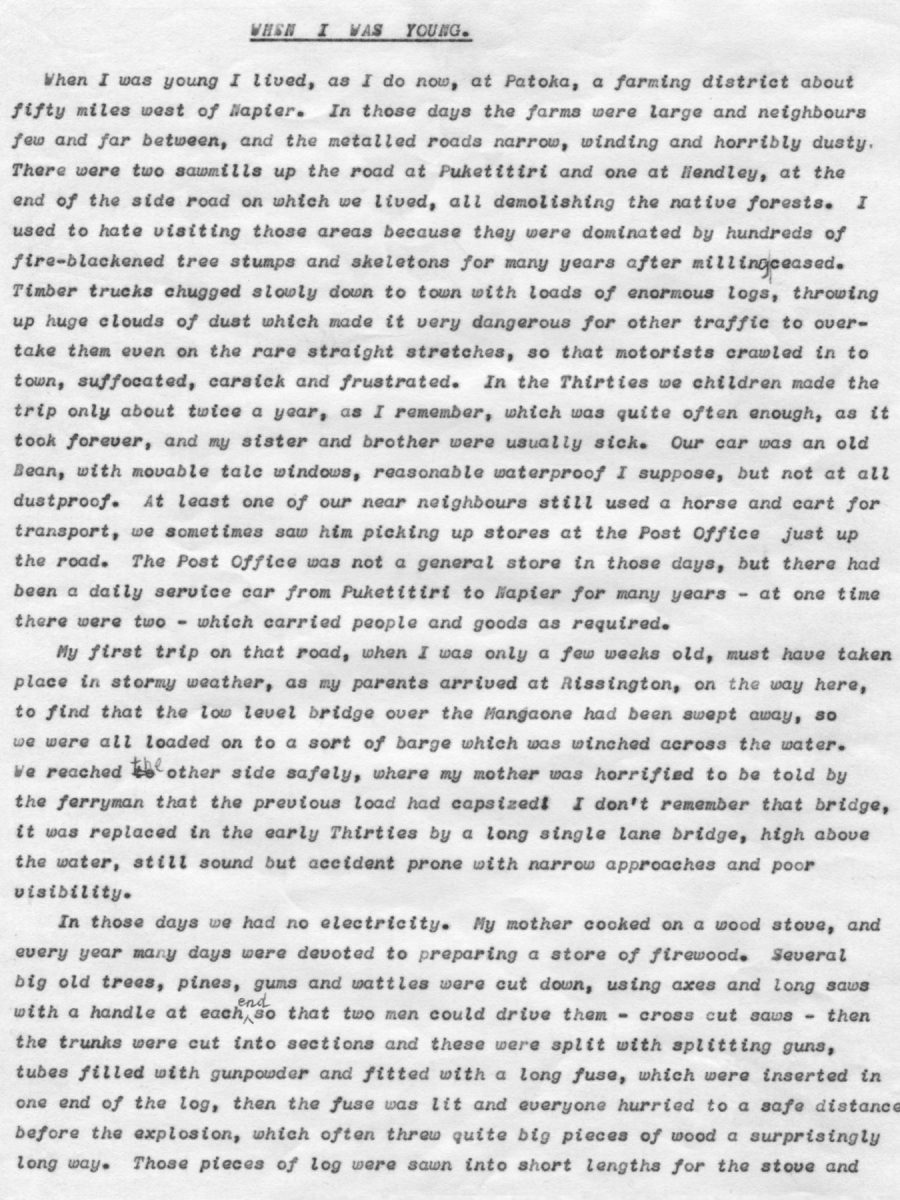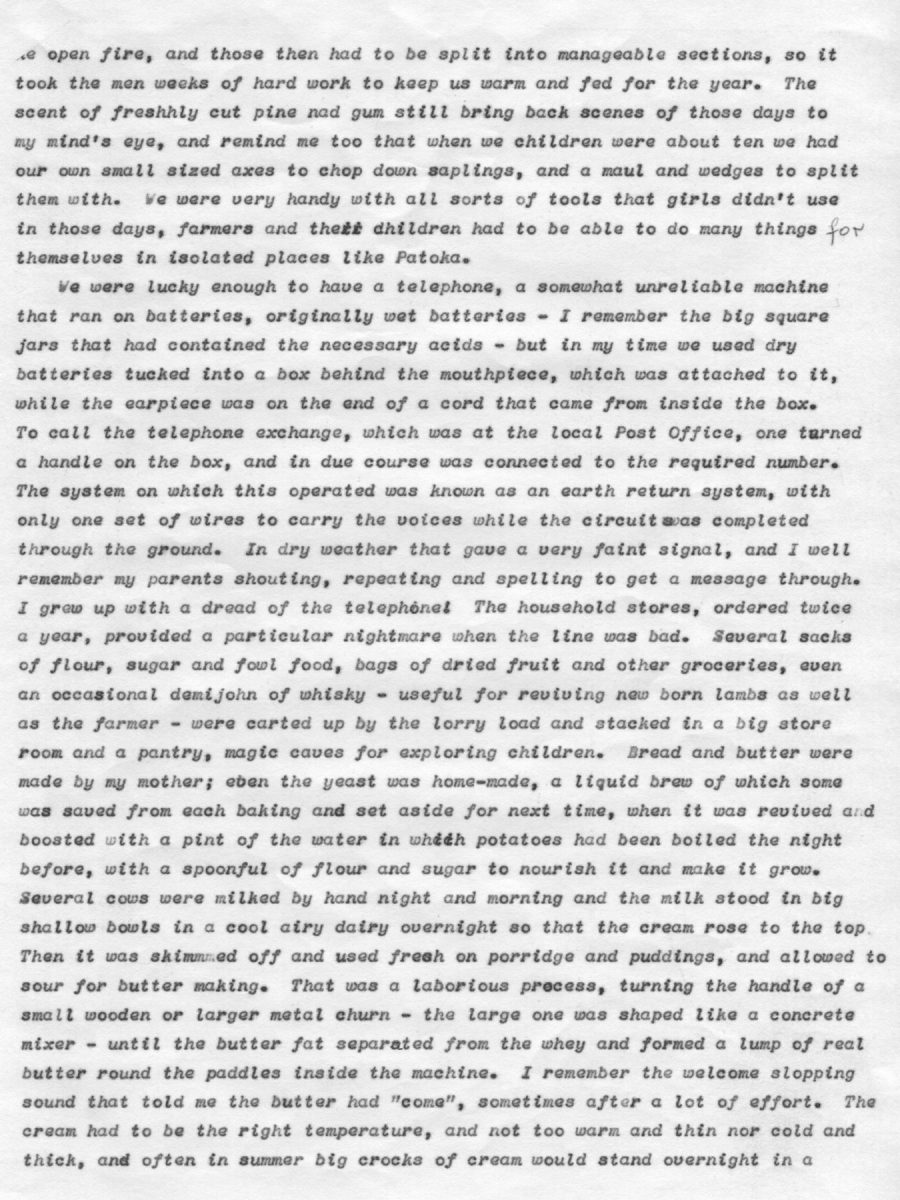WHEN I WAS YOUNG.
When I was young I lived, as I do now, at Patoka, a farming district about fifty miles west of Napier. In those days the farms were large and neighbours few and far between, and the metalled roads narrow, winding and horribly dusty. There were two sawmills up the road at Puketitiri and one at Hendley, at the end of the side road on which we lived, all demolishing the native forests. I used to hate visiting those areas because they were dominated by hundreds of fire-blackened tree stumps and skeletons for many years after milling ceased. Timber trucks chugged slowly down to town with loads of enormous logs, throwing up huge clouds of dust which made it very dangerous for other traffic to overtake them even on the rare straight stretches, so that motorists crawled in to town, suffocated, carsick and frustrated. In the Thirties we children made the trip only about twice a year, as I remember, which was quite often enough, as it took forever, and my sister and brother were usually sick. Our car was an old Bean, with movable talc windows, reasonable waterproof I suppose, but not at all dustproof. At least one of our near neighbours still used a horse and cart for transport, we sometimes saw him picking up stores at the Post Office just up the road. The Post Office was not a general store in those days, but there had been a daily service car from Puketitiri to Napier for many years – at one time there were two – which carried people and goods as required.
My first trip on that road, when I was only a few weeks old, must have taken place in stormy weather, as my parents arrived at Rissington, on the way here, to find that the low level bridge over the Mangaone had been swept away, so we were all loaded on to a sort of barge which was winched across the water. He reached the other side safely, where my mother was horrified to be told by the ferryman that the previous load had capsized! I don’t remember that bridge, it was replaced in the early Thirties by a long single lane bridge, high above the water, still sound but accident prone with narrow approaches and poor visibility.
In those days we had no electricity. My mother cooked on a wood stove, and every year many days were devoted to preparing a store of firewood. Several big old trees, pines, gums and wattles were cut down, using axes and long saws with a handle at each end so that two men could drive then – cross cut saws – then the trunks were cut into sections and these were split with splitting guns, tubes filled with gunpowder and fitted with a long fuse, which were inserted in one end of the log, then the fuse was lit and everyone hurried to a safe distance before the explosion, which often threw quite big pieces of wood a surprisingly long way. Those pieces of log were sawn into short lengths for the stove and















Do you know something about this record?
Please note we cannot verify the accuracy of any information posted by the community.